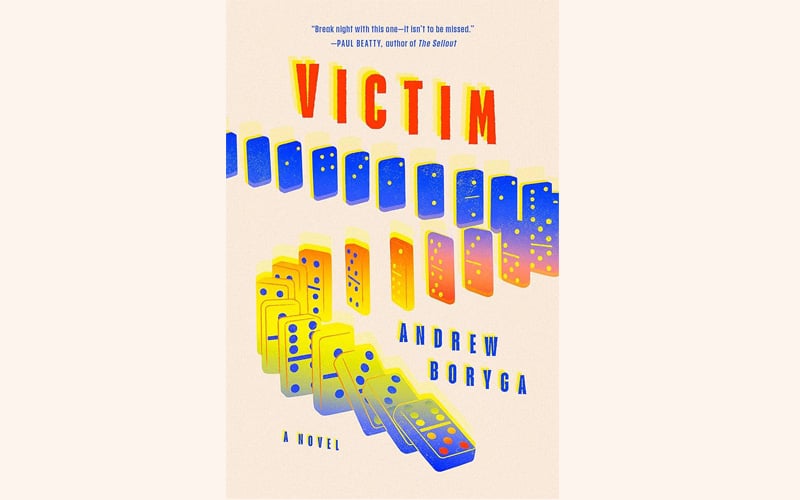‘…if you don’t have… the right skin colour and you don’t have the right geographic background, you’re fucked.’ Reading this, most would assume that ‘right’ would equate to something like ‘white’ and ‘affluent, Western, middle-or-upper-class’. We know about systemic racism, after all. What it actually means here is ‘black-or-brown’ and ‘the Bronx’. At least, that’s the perspective of Javi, the narrator who recounts his rise and fall as a professional ‘victim’. The sad irony of the fact that Javi is proud of possessing qualities that allow affluent white people to view him as a victim is part of the web of unsettling ideas raised by Boryga’s excellent debut novel.
After he witnesses the murder of his father, a Puerto Rican drug dealer, Javi realises that being a victim has its upsides: he is now able to skip class whenever he wants to go to the school nurse. Then a guidance counsellor from a fancy private school starts volunteering at Javi’s high school and cynically encourages Javi to exploit his personal history as ‘material’ for a college admissions essay. It works, and his entrance to an elite university puts Javi well on the road to making his name as a professional writer on the lived experiences of systemically oppressed minority groups in America.
Except most of what he writes is total fabrication. Empowered by learning the discourse of critical race theory at university, Javi realises that in a world where diversity has become a corporate buzzword and where middle-class white people are obsessed with displaying themselves as advocates of social justice, he’s on to a winner. Provided, of course, that he doesn’t mind manipulating the truth of his life and the lives of those close to him, none of whom see themselves – or wish themselves to be seen – as victims.
What’s really interesting to me is that we are given snippets of Javi’s published writing. And it’s awful. Heavy-handed, loaded with cliché, sanctimonious. But the question is: would I find the writing awful if it wasn’t framed by both the excellent writing of the rest of the novel and by the knowledge that what I’m reading is an exploitative lie? If I were reading Javi’s work as a true story, would I lap it up as earnest and powerful revelations of systemic racism in my society, like the hipsters who fawn over Javi’s work in the novel do?
I’d like to think not. But I can’t be sure. And it’s this potential complicity in a system that is willing to exploit anything that can be commodified with one hand while flying the banner of ‘authenticity’ with the other, that makes Victim such a compelling and important read.







Click here to change your cookie preferences